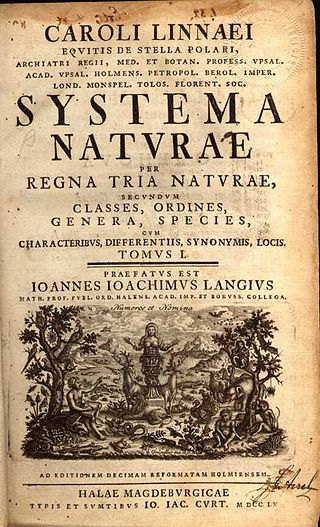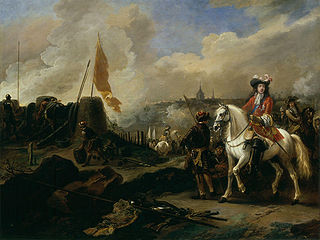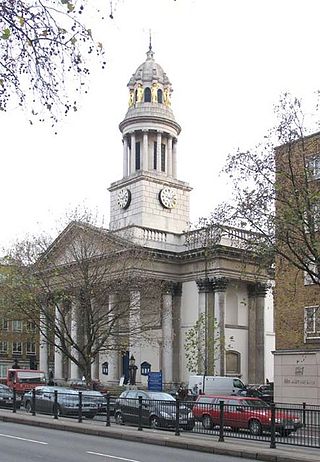
1735 (MDCCXXXV) was a common year starting on Saturday of the Gregorian calendar and a common year starting on Wednesday of the Julian calendar, the 1735th year of the Common Era (CE) and Anno Domini (AD) designations, the 735th year of the 2nd millennium, the 35th year of the 18th century, and the 6th year of the 1730s decade. As of the start of 1735, the Gregorian calendar was 11 days ahead of the Julian calendar, which remained in localized use until 1923.

1685 (MDCLXXXV) was a common year starting on Monday of the Gregorian calendar and a common year starting on Thursday of the Julian calendar, the 1685th year of the Common Era (CE) and Anno Domini (AD) designations, the 685th year of the 2nd millennium, the 85th year of the 17th century, and the 6th year of the 1680s decade. As of the start of 1685, the Gregorian calendar was 10 days ahead of the Julian calendar, which remained in localized use until 1923.

1712 (MDCCXII) was a leap year starting on Friday of the Gregorian calendar and a leap year starting on Tuesday of the Julian calendar, the 1712th year of the Common Era (CE) and Anno Domini (AD) designations, the 712th year of the 2nd millennium, the 12th year of the 18th century, and the 3rd year of the 1710s decade. As of the start of 1712, the Gregorian calendar was 11 days ahead of the Julian calendar, which remained in localized use until 1923.

Charles Wesley was an English Anglican cleric and a principal leader of the Methodist movement. Wesley was a prolific hymnwriter who wrote over 6,500 hymns during his lifetime. His works include "And Can It Be", "O for a Thousand Tongues to Sing", "Christ the Lord Is Risen Today", "Love Divine, All Loves Excelling", the carol "Hark! The Herald Angels Sing", and "Lo! He Comes With Clouds Descending".
This article contains information about the literary events and publications of 1662.
This article is about music-related events in 1837.
John Stanley may refer to:
John Alcock may refer to:
Johann, typically a male given name, is the German form of Iohannes, which is the Latin form of the Greek name Iōánnēs (Ἰωάννης), itself derived from Hebrew name Yochanan in turn from its extended form Yehochanan, meaning "Yahweh is Gracious" or "Yahweh is Merciful". Its English language equivalent is John. It is uncommon as a surname.

Samuel Wesley was an English organist and composer in the late Georgian period. Wesley was a contemporary of Mozart (1756–1791) and was called by some "the English Mozart".
The year 1667 in music involved some significant events.

The year 1662 in music involved some significant events.
Events from the year 1662 in England.
Nationality words link to articles with information on the nation's poetry or literature.

St Marylebone Parish Church is an Anglican church on the Marylebone Road in London. It was built to the designs of Thomas Hardwick in 1813–17. The present site is the third used by the parish for its church. The first was further south, near Oxford Street. The church there was demolished in 1400 and a new one erected further north. This was completely rebuilt in 1740–42, and converted into a chapel-of-ease when Hardwick's church was constructed. The Marylebone area takes its name from the church. Located behind the church is St Marylebone School, a Church of England school for girls.
Bach is a surname of German-language origin. Notable people with the surname include:
Charles Lloyd may refer to:

Samuel Wesley the Younger was a poet, teacher and an Anglican cleric. He was the eldest of the Wesley brothers—with younger brothers John and Charles—but did not play a notable role in the nascent Methodist movement.
Wesley is a name with an Anglo-Norman etymology. The "wes" portion of the name refers to the Western cardinal direction, while the word "lea" refers to a field, pasture, or other clearing in a forest. Thus, the name's origin refers to a "western lea," or a field to the west.
This page is based on this
Wikipedia article Text is available under the
CC BY-SA 4.0 license; additional terms may apply.
Images, videos and audio are available under their respective licenses.







